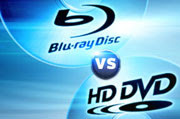
AMD will work with game giant Havok to tailor Havok's game technology to AMD processors, the companies said Thursday
The plans call for optimizing game-physics effects utilizing AMD's multicore processors and graphics processing units, or GPUs.
Game physics brings the laws of physics--or physical-world simulation--to a game. For example, explosions may be modeled differently depending on the terrain.
Havok, which Intel acquired in September of last year, provides development tools and services used by digital-media creators. Havok's technology has been used in game titles such as BioShock, Stranglehold, Halo 2, Half Life 2, and has been used to create special effects in movies such as The Matrix and Charlie and the Chocolate Factory.
Physics code has traditionally run on a CPU such as an AMD Phenom X4 quad-core processor. As part of the collaboration, Havok and AMD plan to further optimize Havok physics on AMD CPUs. Right now about 300 titles are optimized for Havok physics on the CPU, said Matt Skynner, vice president of marketing at AMD's Graphics Products Group.
AMD wants to take this CPU-centric approach a step further, however, and optimize certain components on the GPU, as well. "The plan is to work with them to leverage the right pieces of the physics (technology) that can be accelerated on the GPU," Skynner said.
"The feedback that we consistently receive from leading game developers is that core game play simulation should be performed on CPU cores," said David O'Meara, managing director of Havok in a statement. "Beyond core simulation, however, the capabilities of massively parallel (GPU) products offer technical possibilities for computing certain types of simulation," he said.
AMD is chasing Nvidia, which acquired Ageia Technologies in February. Ageia's PhysX software is widely used, with more than 140 PhysX-based games shipping or in development on Sony Playstation3, Microsoft XBOX 360, Nintendo Wii and gaming PCs, according to Nvidia.
And Nvidia has said that the conversion of Ageia's physics application interface to Nvidia's CUDA C language environment is under way. This means users will be able to get the benefits of a physics accelerator via a software download, Nvidia said.






